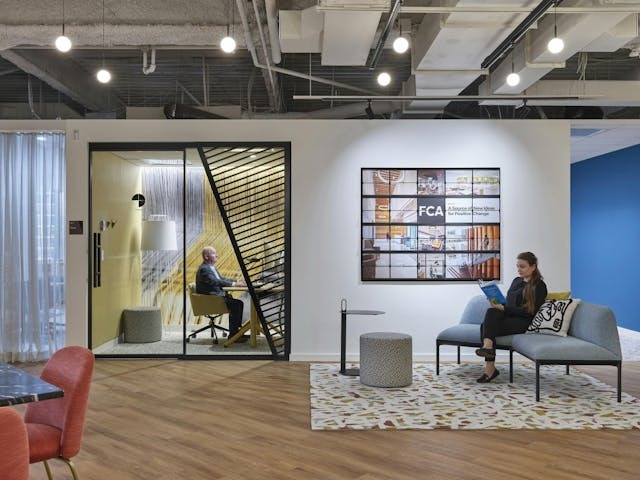
Follow WOWNEWS 24x7 on:
Updated: June 28, 2025 00:54

As hybrid work becomes the new normal and office design undergoes a radical transformation, a deeper question is emerging: while our workspaces are evolving at breakneck speed, is the human brain adapting just as fast? From biophilic design and AI-powered collaboration tools to flexible layouts and wellness pods, the modern workplace is being reimagined to boost productivity and well-being. But the psychological toll of constant change, digital overload, and blurred boundaries is prompting experts to ask whether our cognitive and emotional systems are equipped for this new era.
Key Shifts In The Modern Workspace
- Offices are now designed as dynamic hubs with zones for collaboration, deep focus, and social interaction
- Hybrid-ready infrastructure includes smart booking systems, occupancy sensors, and seamless video conferencing setups
- Biophilic elements, ergonomic furniture, and sensorial design are being prioritized to support mental health
- Younger professionals increasingly prefer physical office presence for learning, networking, and community
- Companies are investing in wellness amenities like nap pods, meditation rooms, and nature-inspired breakout areas
The Cognitive Catch-Up Challenge
While physical spaces are adapting rapidly, the human brain—wired for routine and predictability—is struggling to keep pace.
- Constant context-switching between remote and in-office work can lead to decision fatigue and reduced focus
- The pressure to be always-on in hybrid setups is contributing to burnout and digital exhaustion
- Neuroscientists warn that overstimulation from tech-enabled environments may impair deep thinking and creativity
- The erosion of informal social cues in virtual settings is affecting emotional intelligence and team cohesion
Mental Health And The New Productivity Equation
The definition of productivity is shifting from output alone to include emotional well-being, focus, and creativity.
- Employees now seek environments that support psychological safety and autonomy
- Flexible work models are empowering but also demand higher self-regulation and time management
- Organizations are experimenting with mental health days, asynchronous workflows, and digital detox policies
- Mindfulness, empathy, and emotional resilience are becoming core workplace competencies
Designing For Neurodiversity And Inclusion
As workspaces evolve, inclusivity is taking center stage—not just in terms of accessibility, but also cognitive diversity.
- Quiet zones, adjustable lighting, and sensory-friendly layouts are being introduced to support neurodivergent employees
- Hybrid models allow individuals to choose environments that align with their cognitive and emotional rhythms
- Inclusive design is being recognized as a driver of innovation, engagement, and retention
Why This Matters Now
The future of work is not just about where we work, but how we think, feel, and connect in those spaces. As organizations race to build future-ready offices, they must also invest in helping the human mind adapt—through thoughtful design, empathetic leadership, and mental health support. The real innovation lies in aligning spatial evolution with psychological evolution.
Sources: Times of India, Tally Workspace, Work Design Magazine, Woxday, Office Hub, Psychology Today, Indian Express




